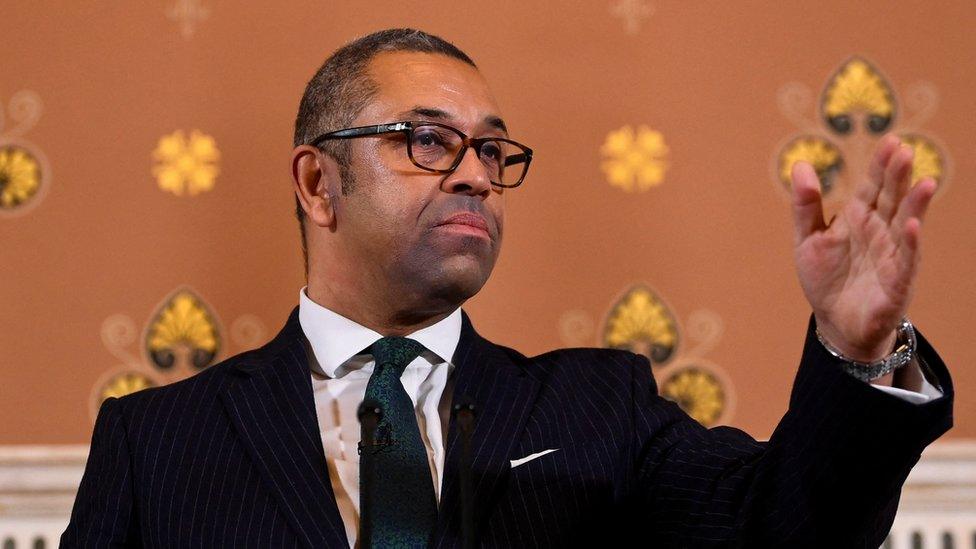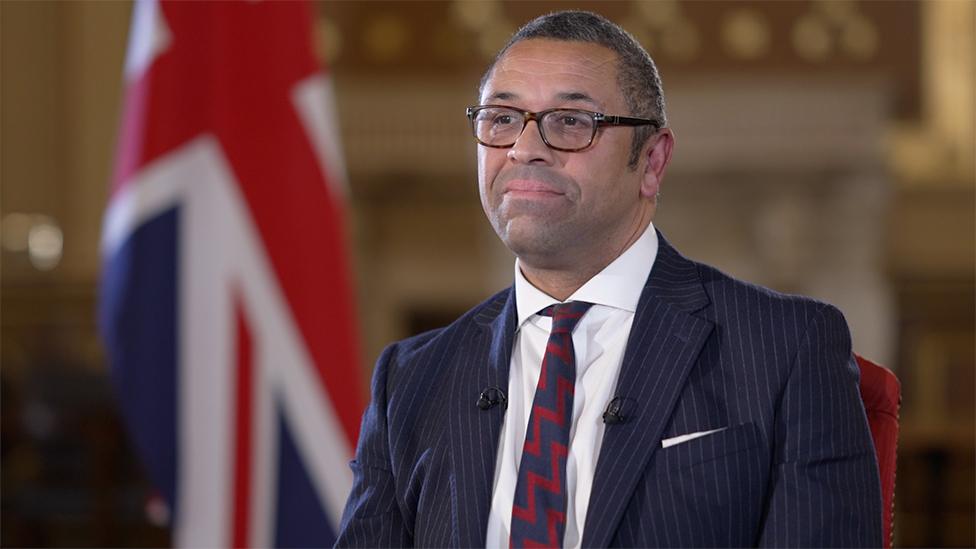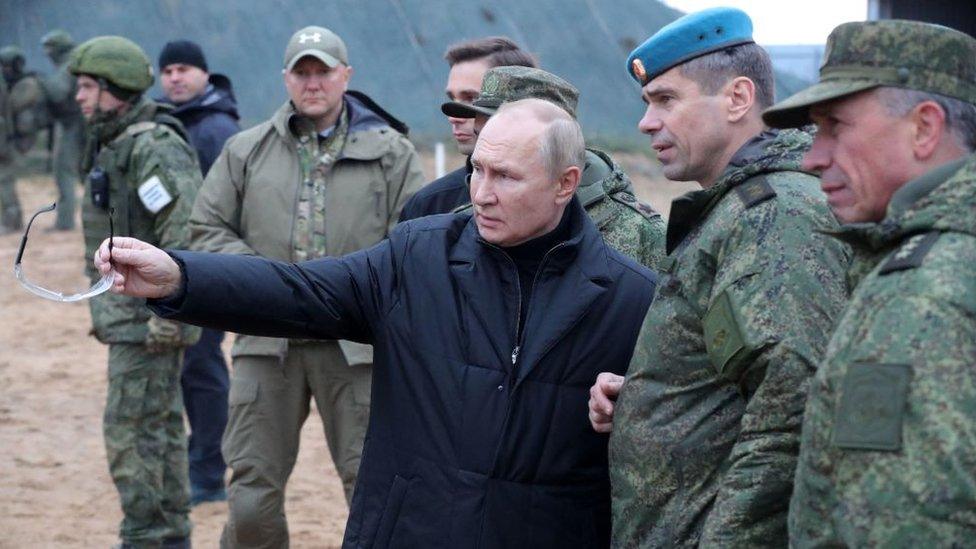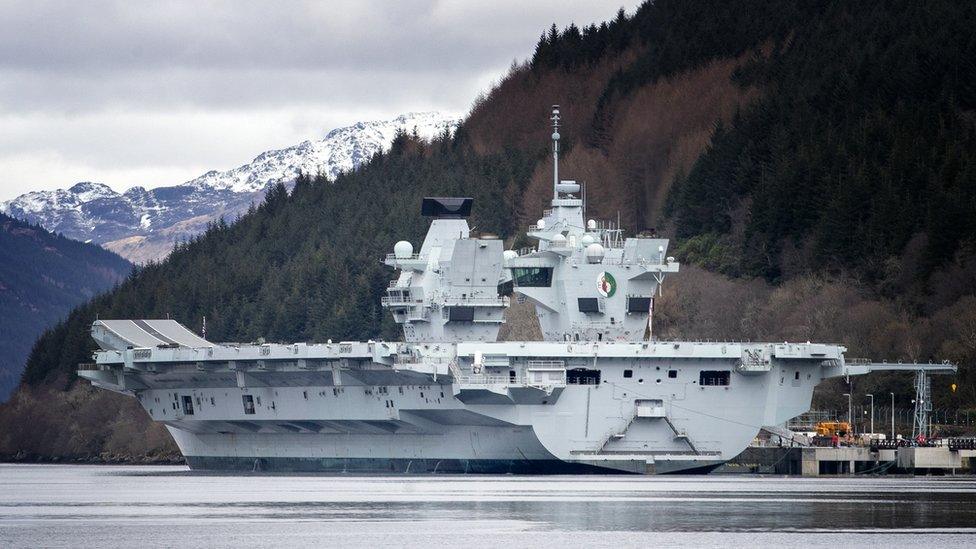Comfort blanket allies are not enough, says James Cleverly
- Published

The UK needs to find new allies and not simply rely on the "comfort blanket" of traditional alliances, the foreign secretary has said.
In his first big speech in the job, Mr Cleverly said "rock-solid friendships" with countries in North America and Europe were "vital" but not enough to "sustain the international order".
He vowed to build new bonds with Asian, African and Latin American nations.
He said this would be hard, but the UK would "curse" itself if it did not try.
Mr Cleverly also said that if the UK failed to build alliances with increasingly powerful nations, "you can bet that others will try and fill that void and seize any opportunity that we might be mistaken enough to give them."
"In the coming decades, an ever greater share of the world economy - and therefore the world's power - will be in the hands of countries in Asia, Africa and Latin America.
"Together they will decide whether the international order will endure - that reality has been evident for some time, but I am not convinced that British diplomacy has fully caught up."
He said the UK needed to work and sell the benefits of "subscription to international law, about using peaceful mechanisms for dispute resolution, about moving in a direction which embraces human rights and diversity and those things which are the foundation stones of our political philosophy."
The foreign secretary argued that such countries were focused on attracting investment, decarbonising their economies and creating jobs for their typically younger population.
"In all these fields and many others, our opportunity is to show that the UK can be and will be a reliable, trustworthy and long-term partner and I am determined that we'll make investments of faith in the countries that will shape the world's future."


On one level, James Cleverly is doing something that seems obvious.
He's saying Britain should engage more closely with non-traditional allies in Africa, Asia and Latin America. These countries are future powers. They and the UK should have more mutually beneficial partnerships.
This kind of patient diplomacy, lasting decades not years, should boost Britain's national interests more than short term, transactional relationships of the past. Gone is the "hectoring" tone of Global Britain.
But on another level, Mr Cleverly is also making a more subtle defence of the international order that is being threatened by Russia and other autocratic countries.
He's saying that defeating Russia is not enough, the West must also convince new allies in the south and the east that these rules are in their interests too.
But note this: gone is any talk of a "network of liberty". The focus is on new allies who believe in sovereignty, territorial integrity and international rules.
Less attention, it might seem, is given to their internal democratic values and human rights.

Mr Cleverly became foreign secretary in September, taking over from Liz Truss.
His key challenge is managing UK support for Ukraine in its war against Russia, but he also faces the task of resolving disagreements with the EU over post-Brexit trading arrangements in Northern Ireland.
Mr Cleverly said he wanted to reach an agreement with the EU over new trading arrangements in Northern Ireland "as soon as possible" but said talks were best done in private rather than using "megaphone negotiations".
Related topics
- Published23 November 2022

- Published10 December 2022

- Published16 March 2021
